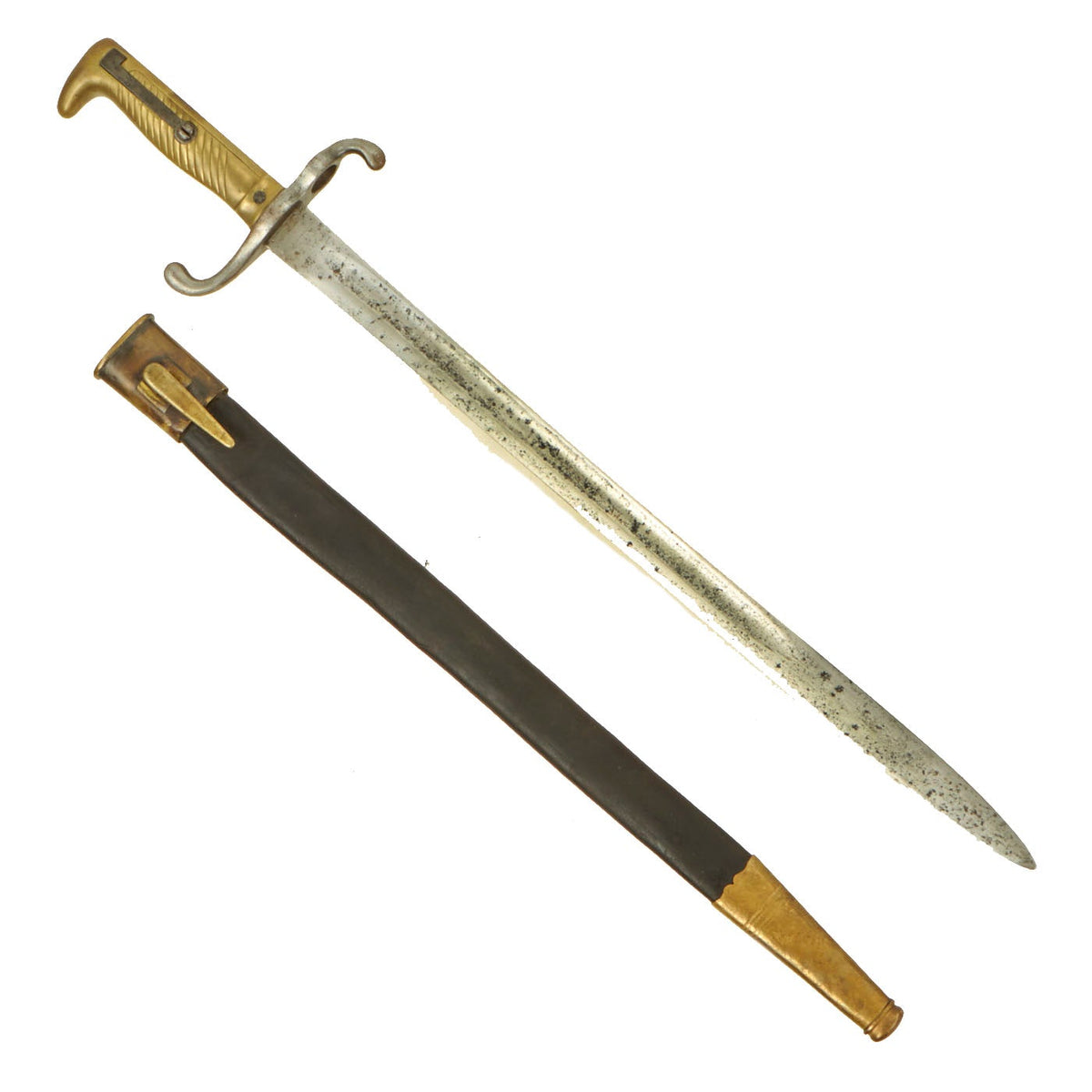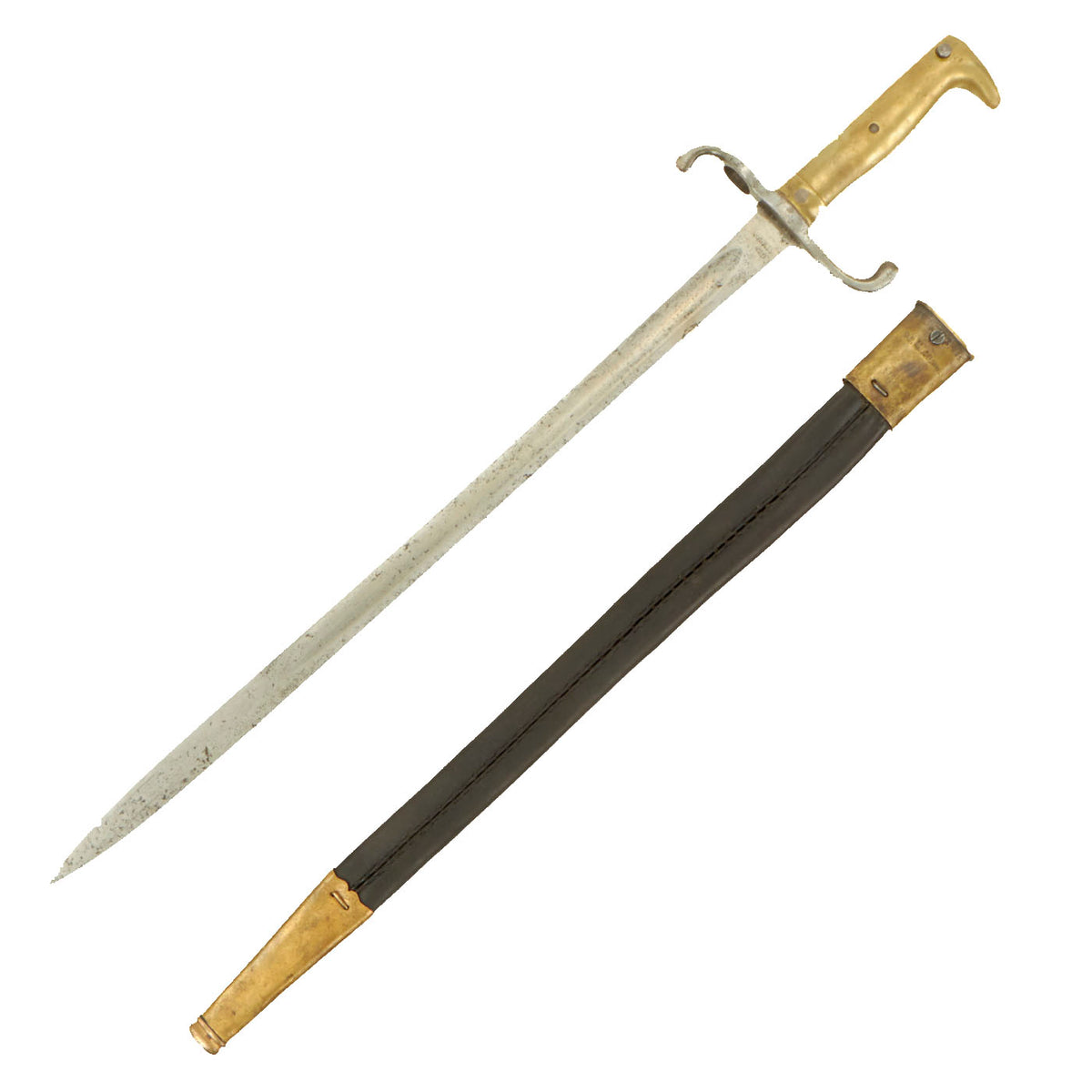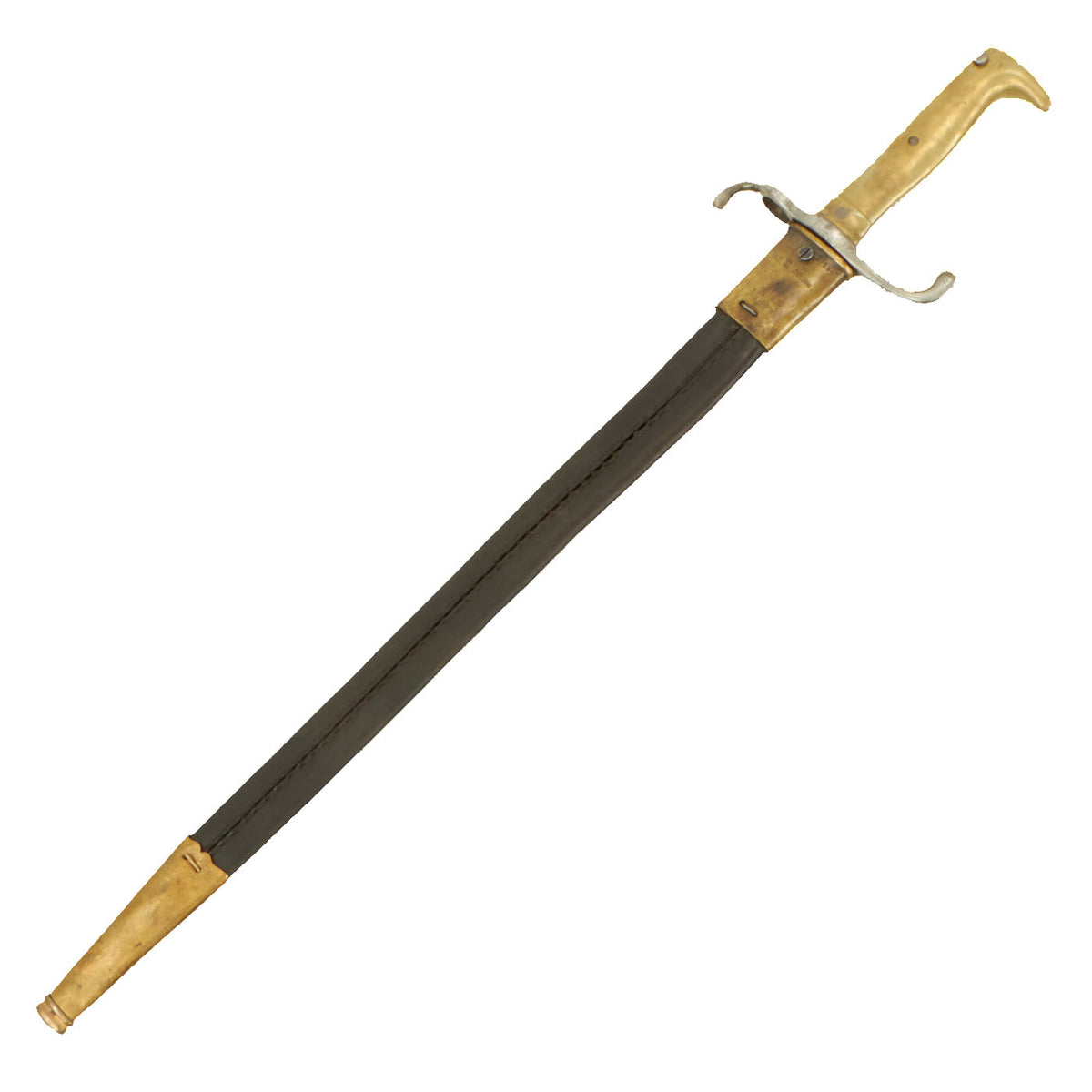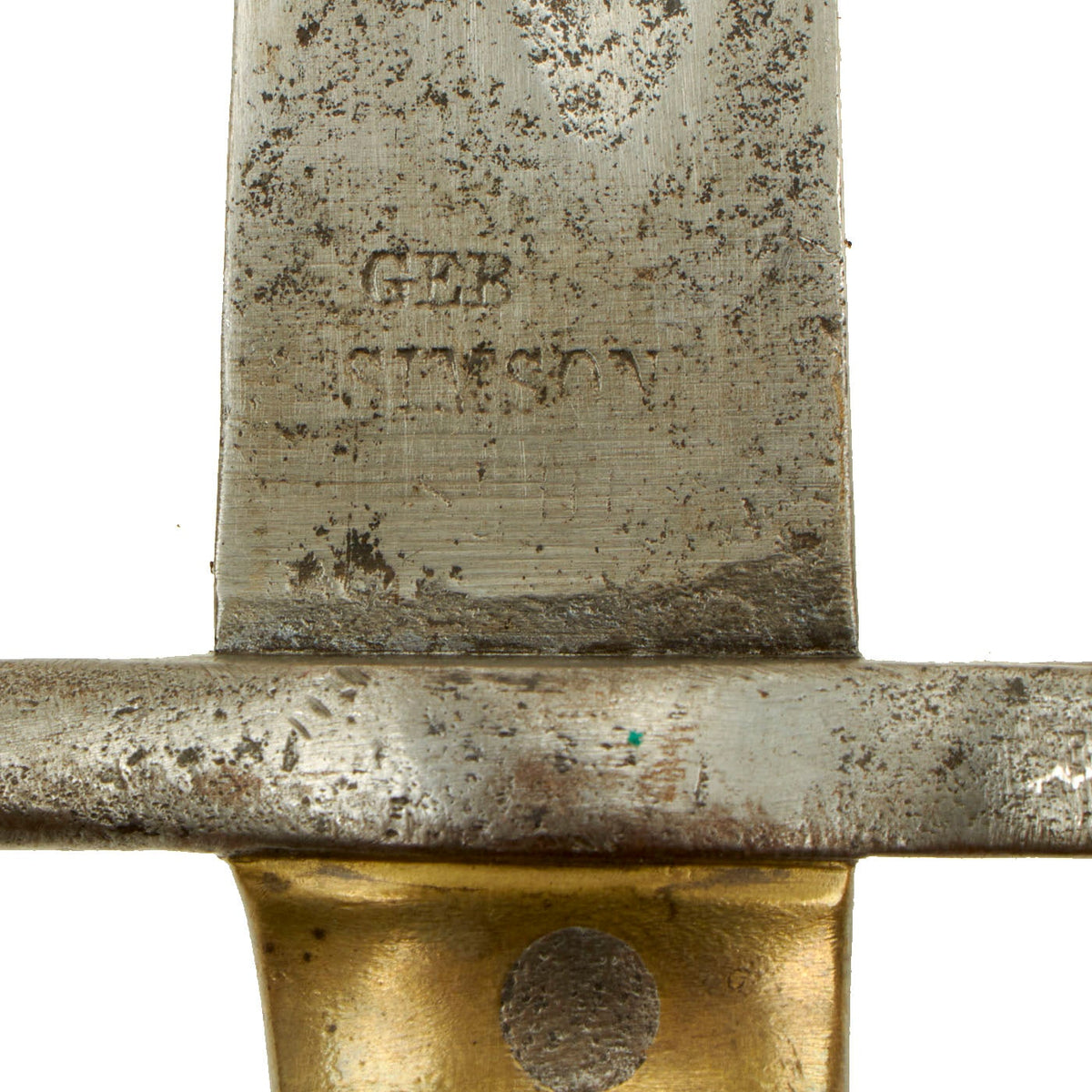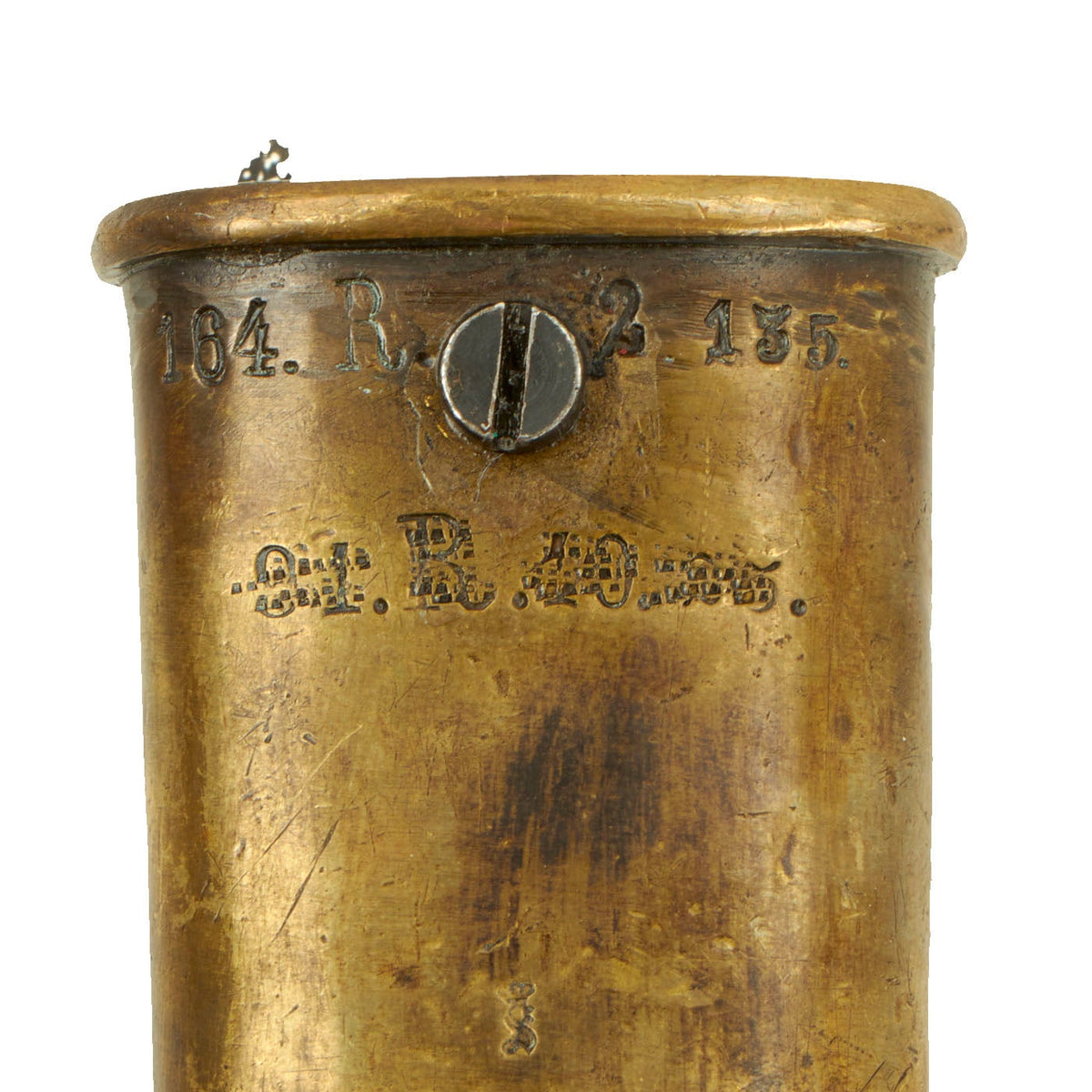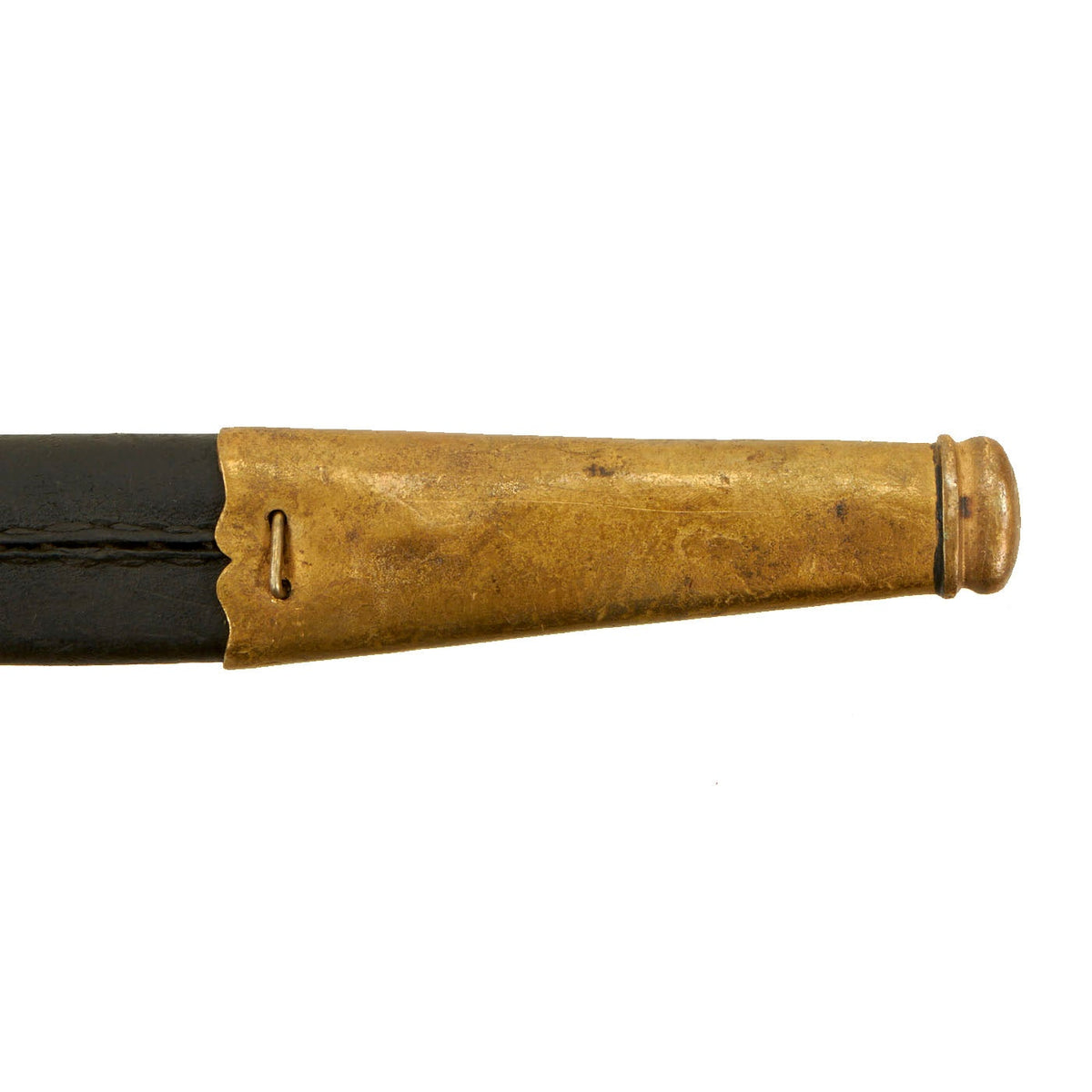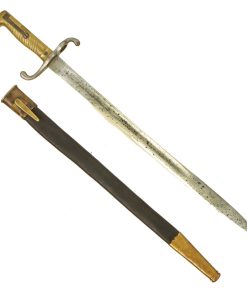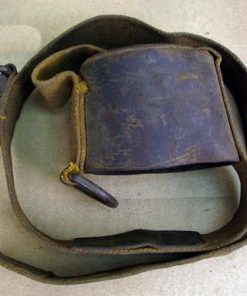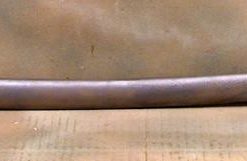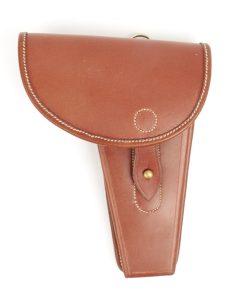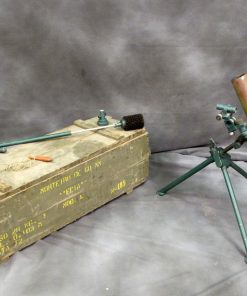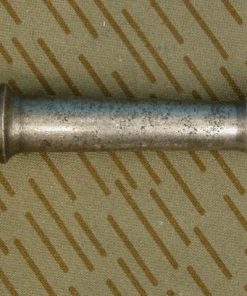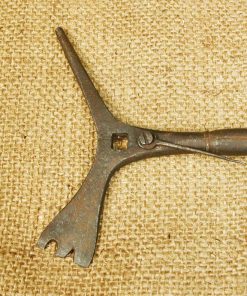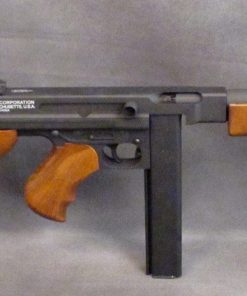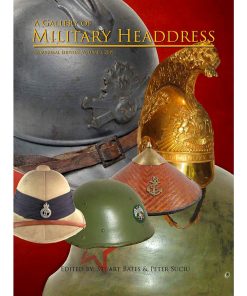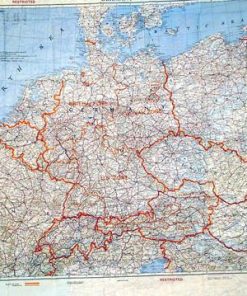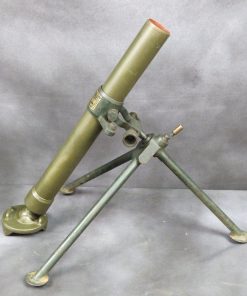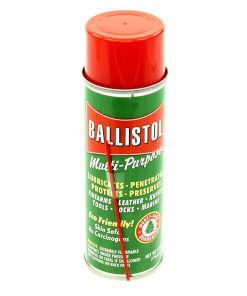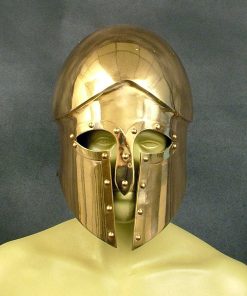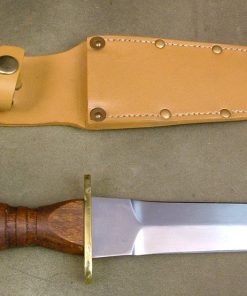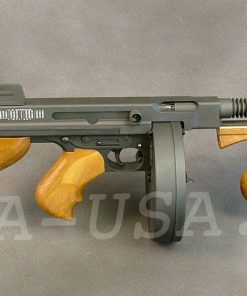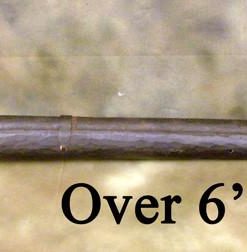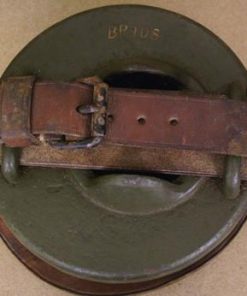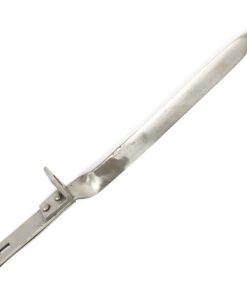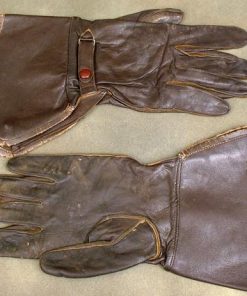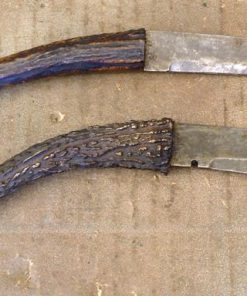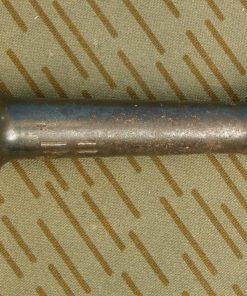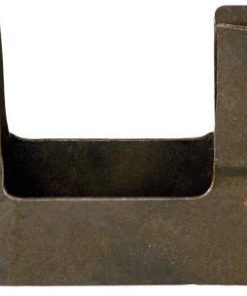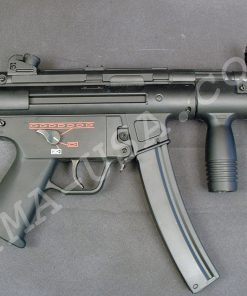Original German Mauser Model 1871 Rifle Bayonet by Gebrüder Simson with Regiment Marked Scabbard – Dated 1873 Original Items
$ 495,00 $ 148,50
Original Item: Only One Available. This is a very good example of the Mauser Model 1871 rifle bayonet with brass hilt, compete with the original brass-fitted leather scabbard. The bayonet is in good condition, and is marked on the rear of the blade with (Crown) / W / 73, indicating acceptance in 1873 during the reign of German Emperor Wilhem I, who reigned 1871-1888.
The steel blade is 18″ long and is in very good condition, with only light wear and a bit of staining and some pitting. It has been sharpened, so this is a bayonet that did see service, though they were more often used as tools than weapons by the late 19th century.
The blade ricasso is maker marked GEBR: / SIMSON / [SUHL], indicating manufacture by Gebrüder Simson (Simson Brothers) in Suhl, Thuringia, Germany. This company, later known as Simson & Cie, was a major manufacturer in the Suhl Area, and later began production of bicycles and other items in addition to edged weapons. At the onset of WWI, the company had 3500 employees, however in the post war depression, they had to fire 2/3 of their workforce. The company continued trading and was again successful, however since the Simson family were Jewish, they found the company headquarters occupied by the SA in 1933. The company was then forcibly renamed BSW, and pressed into service making small arms. Thankfully, the Simson family was able to emigrate to the U.S.A. in 1936. For more information please see J Anthony Carter’s excellent work GERMAN KNIFE AND SWORD MAKERS.
The handle of the blade is in good condition, and has a fully functional bayonet latch. There are also some proof marks, as is typical on Imperial German bayonets. The steel “S” shaped crossguard does have a bit of oxidation in areas.
The bayonet comes complete with its original brass mounted black leather scabbard bearing bearing two regimental markings: 164 R. 2. 135. & 91 R. 40. 25. (crossed out). The crossed out number was probably the first designation, and most likely is for the 91st (Oldenburg) Infantry Regiment, based in Oldenberg, Saxony. The other would probably be the 164th (4th Hannover) Infantry Regiment, based in Hameln, Holzminden. The scabbard is in very good condition, however it has shrunk a bit, and it requires some effort to remove and replace the scabbard fully.
A very nice example of this relatively rare bayonet, ready to display!
Specifications:
Blade Length: 18 1/2″
Blade Style: Single Edge with Fuller
Overall length: 23 1/2“
Crossguard: 4 5/8”
Scabbard Length: 19 1/2″
The Mauser Model 1871 adopted as the Gewehr 71 or Infanterie-Gewehr 71, or “Infantry Rifle 71” (“I.G.Mod.71” was stamped on the rifles themselves) was the first rifle model in a distinguished line designed and manufactured by Paul Mauser and Wilhelm Mauser of the Mauser company and later mass-produced at Spandau arsenal.
Paul Mauser developed his bolt-action rifle from 1867 to 1871. During 1870–71 trials with many different rifles took place, with the “M1869 Bavarian Werder” being the Mausers’ chief competitor. The Mauser was provisionally adopted on 2 December 1871, pending the development of an appropriate safety. With support from the government’s Spandau arsenal, the improvements to the safety mechanism were completed and the rifle was formally accepted on 14 February 1872 as Infantry Rifle Model 1871 by the German Empire excluding Bavaria. General issue to troops began in late 1873 and all units had been converted by the spring of 1875. The Mauser 1871 was replaced by the magazine-fed, smokeless powder using Gewehr 1888 from 1888 through 1890.
Fast Shipping with Professional Packaging
Thanks to our longstanding association with UPS FedEx DHL, and other major international carriers, we are able to provide a range of shipping options. Our warehouse staff is expertly trained and will wrap your products according to our exact and precise specifications. Prior to shipping, your goods will be thoroughly examined and securely secured. We ship to thousands clients each day across multiple countries. This shows how we're dedicated to be the largest retailer on the internet. Warehouses and distribution centres can be located throughout Europe as well as the USA.
Note: Orders with more than one item will be assigned a processing date depending on the item.
Before shipping before shipping, we'll conduct a thorough inspection of the items you have ordered. Today, the majority of orders will be delivered within 48 hours. The delivery time will be between 3-7 days.
Returns
The stock is dynamic and we cannot completely manage it because multiple stakeholders are involved, including our factory and warehouse. So the actual stock may alter at any time. It's possible that you may not receive your order once the order has been made.
Our policy is valid for a period of 30 days. If you don't receive the product within 30 days, we are not able to issue a refund or an exchange.
You can only return an item if it is unused and in the same state as the day you received it. You must have the item in its original packaging.
Related products
Uncategorized
Australian WWII Owen MK1 Machine Carbine SMG Custom Fabricated Replica with Sling Original Items
Uncategorized
Uncategorized
Uncategorized
Uncategorized
Uncategorized
Uncategorized
Uncategorized
Uncategorized
Uncategorized
Uncategorized
Uncategorized
Uncategorized
Uncategorized
Armoured Fighting Vehicles of the World: AFVs of World War One (Hardcover Book) New Made Items
Uncategorized
Uncategorized
Uncategorized
